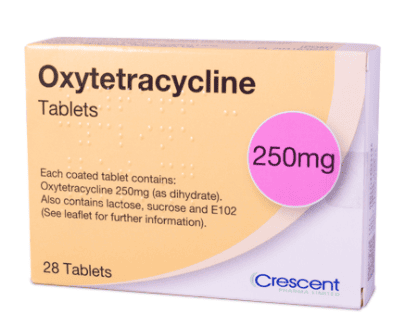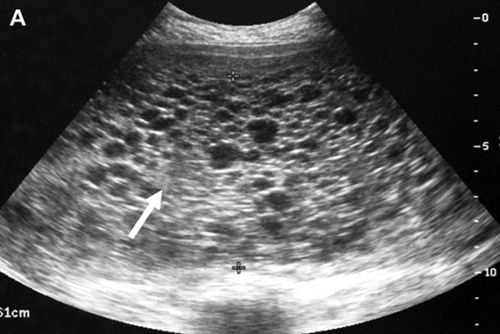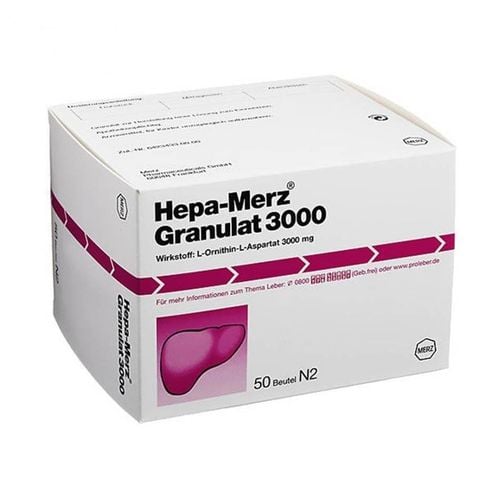The food we consume daily is monitored by the liver for quality. Consuming low-quality or unhygienic foods can overwork the liver, leading to impaired liver function. Therefore, to protect the liver and reduce damage, it is essential to include foods that promote liver health and detoxification.
1. The Role of the Liver
The liver is a vital organ in the body, performing a range of essential tasks, including producing proteins, cholesterol, and bile, as well as storing vitamins, minerals, and carbohydrates. It has the ability to break down toxins found in substances such as alcohol, medications, and by-products of metabolism. Keeping the liver in good condition is crucial for maintaining overall health.So, what foods are good for the liver? Below is information on foods that support liver health.
2. Coffee is Good for the Liver
Coffee is one of the best beverages for promoting liver health. Studies have shown that drinking coffee can protect the liver from disease, even in individuals who already have liver problems. Research indicates that consuming coffee reduces the risk of cirrhosis or permanent liver damage in people with chronic liver conditions.
Drinking coffee can also lower the risk of developing a common type of liver cancer and positively affect liver disease and inflammation. Moreover, coffee consumption has been linked to a reduced risk of death in individuals with chronic liver disease. The greatest liver-related benefits of coffee are observed in those who drink at least three cups a day.These benefits seem to stem from coffee's ability to prevent the accumulation of fat and collagen, which are two key indicators of liver disease.
Additionally, coffee reduces inflammation and boosts levels of the antioxidant glutathione. The antioxidants in coffee help neutralize harmful free radicals, which are naturally produced in the body and can damage cells.
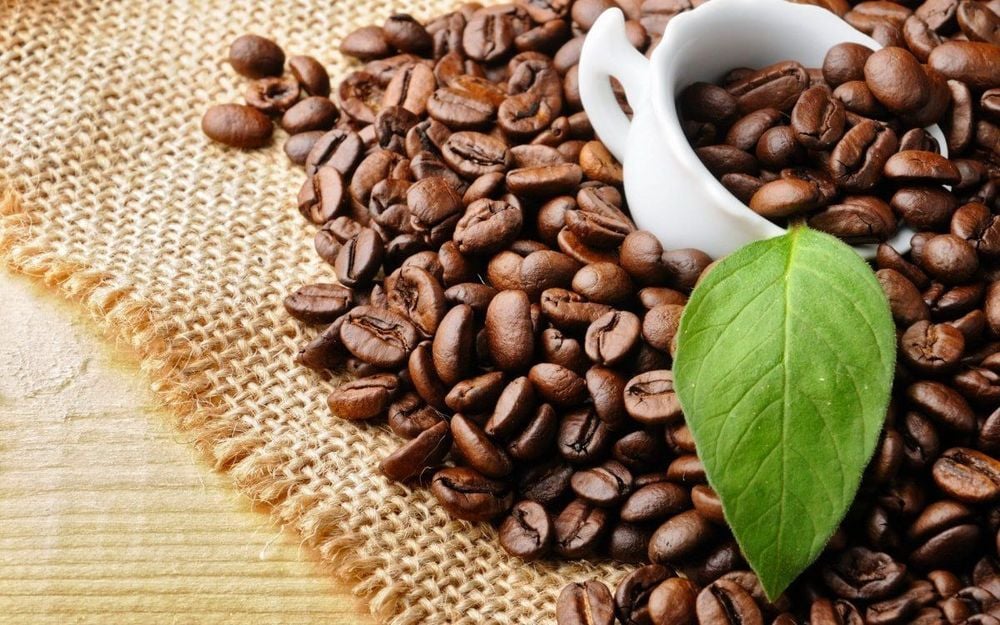
3. Tea: A Healthy Beverage for the Body
Tea is considered beneficial for overall health, and evidence suggests it may provide specific benefits for the liver.
Several studies have found that drinking 5–10 cups of green tea daily is associated with improved blood markers of liver health. In another study involving patients with non-alcoholic fatty liver disease (NAFLD), consuming green tea rich in antioxidants for 12 weeks improved liver enzyme levels and potentially reduced oxidative stress and fat accumulation in the liver.
Additionally, a review found that people who drink green tea have a lower risk of liver cancer, with the lowest risk observed in those who drink four or more cups per day.
However, individuals with pre-existing liver problems should exercise caution before using green tea as a supplement.
4. Benefits of Grapefruit for the Liver
Grapefruit contains two antioxidants, naringenin and naringin, which naturally protect the liver. Studies have found that both help protect the liver from damage. Grapefruit's protective effects occur in two ways: by reducing inflammation and protecting cells.
Research shows that these antioxidants can reduce the development of liver fibrosis, a harmful condition where excessive connective tissue builds up in the liver, often resulting from chronic inflammation.
So far, most studies on the antioxidants in grapefruit and its effects have been conducted on animals. However, current evidence suggests that grapefruit is an effective way to maintain liver health by combating damage and inflammation.
5. Blueberries and Cranberries
Blueberries and cranberries contain anthocyanins, the antioxidants that give berries their distinctive color and are linked to numerous health benefits.
Studies have shown that whole cranberries and blueberries, as well as their extracts or juices, can help maintain liver health. Consuming these fruits for 3–4 weeks has been shown to protect the liver from damage. Additionally, blueberries enhance immune cell responses and antioxidant enzyme levels.
Another experiment found that the antioxidants commonly found in berries slow the development of liver lesions and fibrosis.
Moreover, blueberry extracts have even been shown to inhibit the growth of human liver cancer cells in in vitro studies. However, more research is needed to determine if these effects can be replicated in the human body.

6. Benefits of grapes
Grapes, especially red and purple varieties, are rich in beneficial plant compounds. The most well-known is resveratrol, which offers several health benefits. Many studies have shown that grapes and grape juice can benefit liver health. Additionally, research on the components in grapes has revealed various advantages, including reducing inflammation, preventing damage, and enhancing antioxidant capacity.
One study conducted on individuals with non-alcoholic fatty liver disease (NAFLD) found that taking grape seed extract for three months improved liver function. However, since grape seed extract is a concentrated form, consuming whole grapes may not produce the same effects. More research is needed before recommending grape seed extract for liver health.
7. Prickly Pear
Prickly pear, scientifically known as Opuntia ficus-indica, is a popular edible cactus. Its fruit and juice are the most commonly consumed forms. Prickly pear has long been used in traditional medicine to treat ulcers, wounds, fatigue, and liver conditions.
In a study involving 55 participants, prickly pear extract was found to reduce hangover symptoms. Those who consumed the extract experienced less nausea, dry mouth, appetite loss, and were 50% less likely to have severe hangovers if they took the extract before drinking alcohol—a substance detoxified by the liver.
However, further human studies are needed, particularly on the use of prickly pear juice and fruit instead of extracts.
8. Beetroot Juice
Beetroot juice, a rich source of nitrates and antioxidants called betalains, may benefit cardiovascular health by reducing oxidative damage and inflammation. Several studies have shown that beetroot juice reduces oxidative damage and inflammation in the liver while increasing natural detoxifying enzymes.
Other health benefits of beetroot juice have been observed in animal studies and replicated in human studies. However, more research is needed to confirm the liver health benefits of beetroot juice in humans.
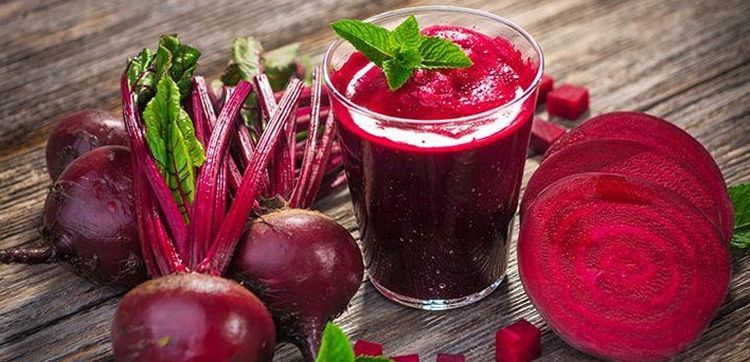
9. Cruciferous Vegetables
Cruciferous vegetables such as Brussels sprouts, broccoli, and mustard greens are known for their high fiber content and distinct flavor. They also contain many compounds that benefit health.
Studies have shown that extracts from Brussels sprouts and broccoli sprouts increase levels of detoxification enzymes and protect the liver from damage. Research on human liver cells indicates that this effect persists even when Brussels sprouts are cooked. Additionally, a recent study in men with fatty liver disease found that broccoli sprout extracts, rich in beneficial plant compounds, improved liver enzyme levels and reduced oxidative stress.
10. Nuts
Nuts contain healthy fats, nutrients like vitamin E, antioxidants, and other compounds that benefit overall health. Nuts provide several health benefits, especially for heart health, but they also positively impact the liver.
A six-month observational study involving 106 people with non-alcoholic fatty liver disease (NAFLD) found that eating nuts was associated with improved liver enzyme levels. Furthermore, other studies analyzing the benefits of nuts showed similar results, indicating that men who ate smaller amounts of nuts had a higher risk of developing NAFLD compared to those who ate larger amounts. Although more high-quality research is needed, preliminary data suggests that nuts are an important food group for liver health.
11. Fatty Fish
Fatty fish are rich in omega-3 fatty acids, healthy fats that reduce inflammation and are linked to a reduced risk of heart disease. The fats in fatty fish also benefit the liver. Studies have shown that omega-3 fatty acids help prevent fat accumulation in the liver, maintain normal enzyme levels, combat inflammation, and improve insulin resistance.
While consuming omega-3-rich fatty fish benefits the liver, supplementing omega-3s in the diet should be done under a doctor’s supervision. Additionally, the ratio of omega-6 to omega-3 fats is important. A high omega-6 to omega-3 ratio can promote the development of liver disease, so reducing omega-6 fat intake is also advisable.
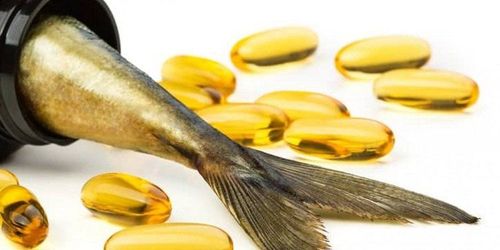
12. Olive Oil
Olive oil is considered a healthy fat due to its numerous health benefits, including positive effects on the heart and metabolism. Consequently, olive oil also has beneficial effects on the liver.
A study involving 11 people with non-alcoholic fatty liver disease (NAFLD) found that consuming one teaspoon (6.5 ml) of olive oil daily improved liver enzyme and fat levels.
Additionally, olive oil increased the levels of a protein associated with positive metabolic effects. Participants also experienced less fat accumulation and improved blood flow in the liver.
Fat accumulation in the liver is a hallmark of the early stages of liver disease. Therefore, the positive effects of olive oil on liver fat, along with its other health benefits, make it a valuable part of a healthy diet.
In addition to focusing on foods that benefit the liver, maintaining a healthy lifestyle and undergoing regular health check-ups are essential. These are considered key factors in assessing liver health and adjusting your diet accordingly.
To arrange an appointment, please call HOTLINE or make your reservation directly HERE. You may also download the MyVinmec app to schedule appointments faster and manage your reservations more conveniently.
Reference source: healthline.com - webmd.com







